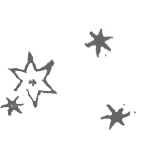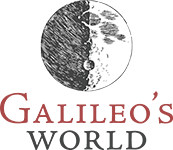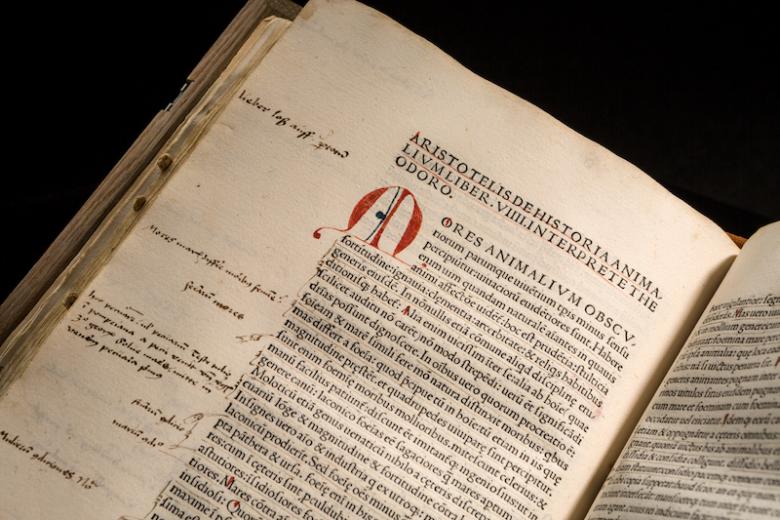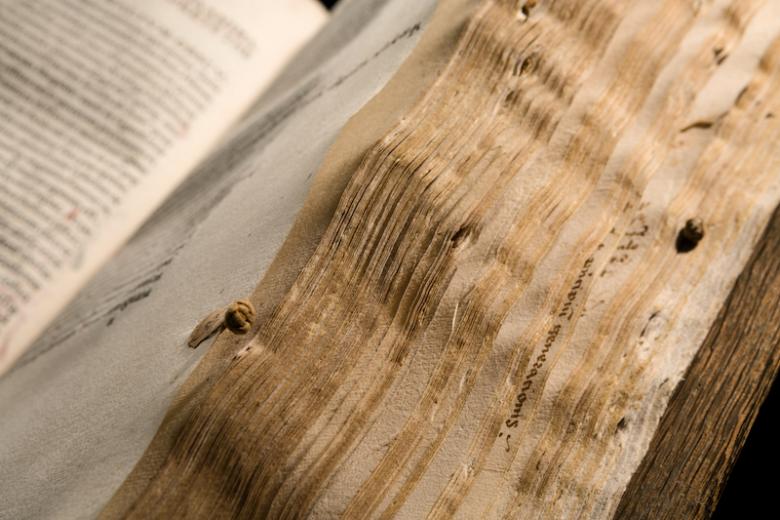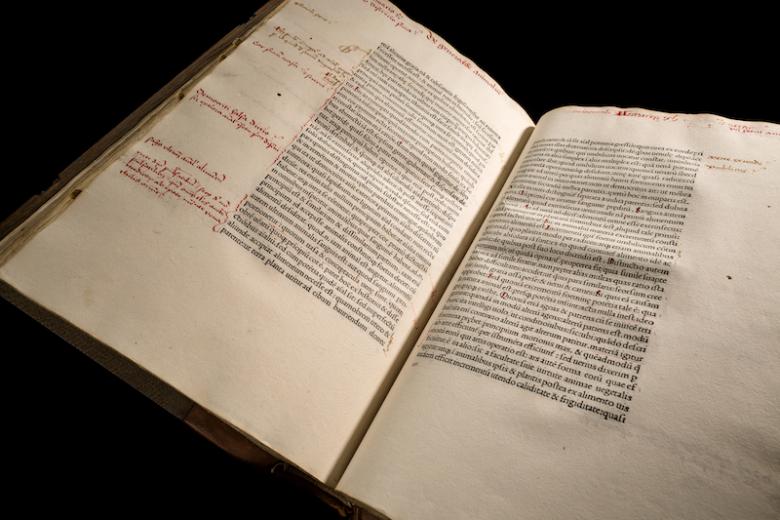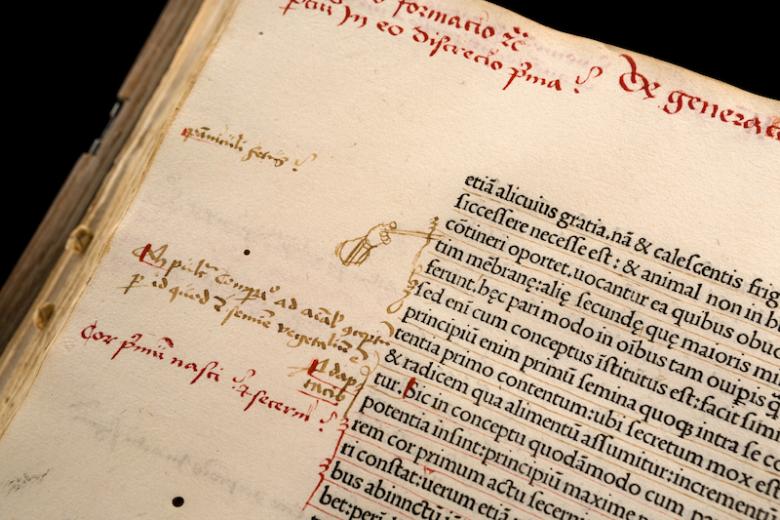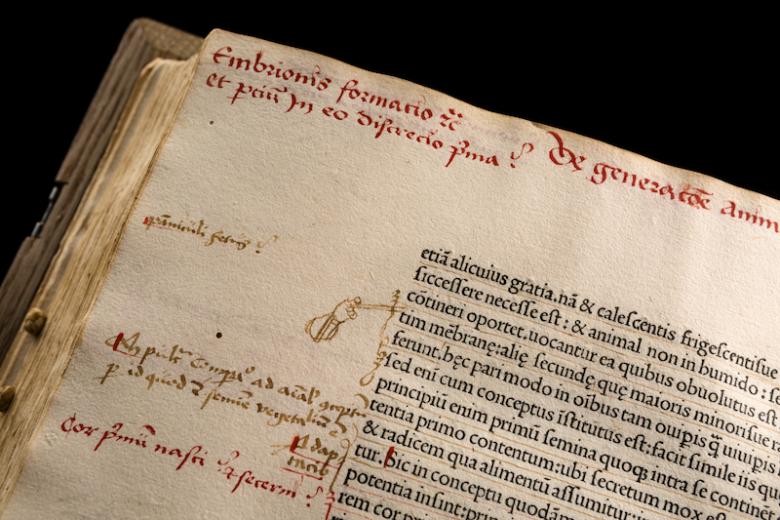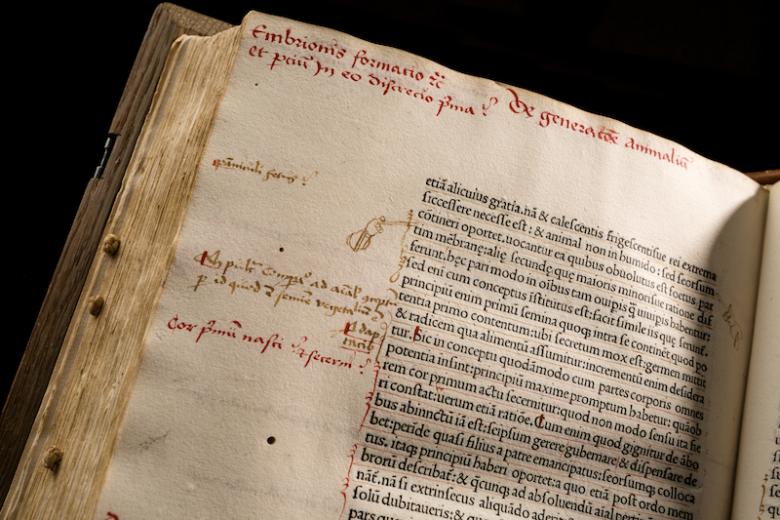Citation
Item Location
This is the first publication of Aristotle’s biological works. While Plato emphasized astronomy as the ennobling science, Aristotle insisted that biology, including the study of even the lowliest organisms, is beautiful to one who understands natural causes. Aristotle dissected the dogshark, and perceptively studied bees and the incubation of birds’ eggs. Some of Aristotle’s observations were not replicated until modern times. Living beings lay at the theoretical foundation of Aristotle’s thought. This copy contains numerous annotations by perhaps a dozen different readers, each with a distinctive form of handwriting. Leather tabs occur at the beginning of major sections in the book. Aristotle, a student of Plato, taught Alexander the Great. When King Phillip of Spain commissioned Hernandez to survey the natural history of Mexico, Hernandez replied that the two of them together were a revival of Alexander and Aristotle.
Related Items
Resource Type: Book

